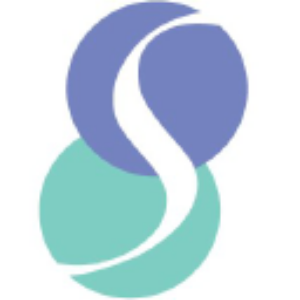Sonnet BioTherapeutics Enters into Clinical Collaboration Agreement to Commence Investigator-Initiated and Funded Phase 1/2a Study of SON-1210 in Combination with Chemotherapy for the Treatment of Pancreatic Cancer
Rhea-AI Summary
Sonnet BioTherapeutics (NASDAQ: SONN) has entered a clinical collaboration agreement with the Sarcoma Oncology Center to conduct a Phase 1/2a study of SON-1210, their bifunctional IL-12/IL-15 fusion protein, in combination with chemotherapy for pancreatic cancer treatment. The study, led by Dr. Sant Chawla and funded by the Sarcoma Oncology Center, aims to address a significant unmet medical need. Preclinical data has shown SON-1210's potential in solid tumor immunotherapy. The collaboration leverages Sonnet's Fully Human Albumin Binding (FHAB®) platform and targets pancreatic cancer, which has increased expression of FcRn and GP60 receptors, and the SPARC complex. SON-1210 has demonstrated increased immune activity and persistence in preclinical models, with no overt toxicity in IND-enabling studies.
Positive
- Entered clinical collaboration agreement for Phase 1/2a study of SON-1210 in pancreatic cancer
- Study funded by Sarcoma Oncology Center, preserving Sonnet's cash resources
- Preclinical data shows SON-1210's potential in solid tumor immunotherapy
- SON-1210 demonstrated increased immune activity and persistence in preclinical models
- No overt toxicity observed in IND-enabling toxicology studies of SON-1210
Negative
- None.
News Market Reaction 1 Alert
On the day this news was published, SONN gained 2.13%, reflecting a moderate positive market reaction.
Data tracked by StockTitan Argus on the day of publication.
Preclinical data has demonstrated the potential of SON-1210, the first albumin-binding bifunctional IL-12/IL-15 fusion protein, for solid tumor immunotherapy
An Innovative Immuno Oncology Consortium (“IIOC”) led by Oncology experts funded by the Sarcoma Oncology Center will conduct an investigator-initiated Phase 1/2a study of SON-1210 in pancreatic cancer, an indication with significant unmet medical need
Company management recently participated in a Virtual Investor KOL Connect segment with world-renowned leaders in pancreatic cancer development - Sant Chawla, MD and Andrew Hendifar, MD; Access the segments here
PRINCETON, N.J., Aug. 19, 2024 (GLOBE NEWSWIRE) -- Sonnet BioTherapeutics Holdings, Inc. (the “Company” or “Sonnet”) (NASDAQ: SONN), a clinical-stage company developing targeted immunotherapeutic drugs, today announced it has entered into a Master Clinical Collaboration Agreement (the “Agreement”) with the Sarcoma Oncology Center, to advance the development of SON-1210, the Company’s proprietary, bifunctional version of human Interleukins 12 (IL-12) and 15 (IL-15), configured using Sonnet's Fully Human Albumin Binding (FHAB®) platform, in combination with chemotherapy for the treatment of metastatic pancreatic cancer.
“We are very pleased to enter into this strategic development collaboration to advance SON-1210 with this prestigious organization and in a program that we believe has the potential to address a significant area of unmet need. We expect that this development approach will provide us with valuable information in a high-value cancer indication that will add to our growing body of data, which we believe will potentially drive value in our platform and enable us to preserve cash resources,” commented Pankaj Mohan, Ph.D., Founder and CEO of Sonnet.
Dr. Hendifar, a renowned physician developing new therapies for pancreatic cancer and neuroendocrine tumors and Associate Professor of Medicine, Medical Director – Pancreatic Cancer, Co-Director – Hematology-Oncology Fellowship Program and Medical Director - Gastrointestinal Oncology Disease Research Group at Cedars-Sinai, added, “Pancreatic cancer incidence is growing worldwide and the advancements in the standards of care beyond chemotherapies has been limited. We believe a novel immunotherapy such as SON-1210 offers an exciting opportunity to improve outcomes for patients.”
Under the terms of the Agreement, the IIOC, led by Dr. Sant Chawla, Director of the Sarcoma Oncology Center, in collaboration with Sonnet, will prepare a protocol and conduct an investigator-initiated Phase 1/2a clinical study to evaluate SON-1210 in combination with several chemotherapeutic agents including but not limited to liposomal irinotecan, 5-fluorouracil/leucovorin, and oxaliplatin (“NALIRIFOX”) for the specific treatment of metastatic pancreatic cancer. NALIRIFOX is U.S. FDA-approved for the treatment of metastatic pancreatic cancer in the front-line and refractory settings. Sonnet will provide the study drug, SON-1210, and support services for the planned Phase 1/2a study.
“We are very excited to enter this collaboration with Sonnet. Cancers are hungry for albumin and albumin-bound drugs are taken up preferentially by cancer cells,” added Dr. Chawla, a leading authority in medical treatment and clinical research for bone and soft-tissue sarcomas and sarcoma therapy. “We know this is a validated mechanism for enhancing efficacy and reducing toxicity and there are no immunotherapies approved for pancreatic cancer. SON-1210's dual IL-12, IL-15 approach builds upon the success of SON-1010 in extending the cytokine half-life and turning cold tumors hot, which is being studied at our center as well.”
John Cini, Ph.D., Chief Scientific Officer and a Co-Founder of Sonnet concluded, “Clinical trials using cytokines have had limited success to date due to their short half-lives, the inability to directly target cancer cells, and high rates of adverse events. Sonnet's fully human albumin-binding platform has been specifically designed to address these issues. Based on our FHAB construct, we have shown that we can increase tumor-targeting and retention by 4-5 fold over unmodified cytokines. We are targeting pancreatic cancer, an area with tremendous unmet need, which has increased expression of the FcRn and GP60 receptors, as well as the SPARC complex. SON-1210, our bifunctional IL-12/IL-15 candidate, has been shown to increase immune activity and persistence in preclinical cancer models, and we are excited to initiate human studies with this unique candidate. SON-1210 may act synergistically with NALIRIFOX, the first new chemotherapy approved for front-line pancreatic cancer in over a decade.”
Additionally, the Company recently participated in a Virtual Investor KOL Connect segment with Dr. Chawla and Dr. Hendifar. The KOL Connect segments are now available here.
As previously announced, the Company successfully completed two IND-enabling toxicology studies of SON-1210 in non-human primates (NHPs), which demonstrated no overt toxicity in the GLP study apart from the expected, and mild, on-target changes in hematology and clinical chemistry parameters that resolved completely within 14 to 21 days post-dosing. A significant increase in interferon gamma (IFNγ), which was transient in nature, was noted as early as one day following administration, with no apparent increase in other proinflammatory cytokines. IFNγ is a well-known pharmacodynamic biomarker that is required for anti-tumor efficacy in preclinical models. Other signs of cytokine imbalance, or uncontrolled increase of pro-inflammatory cytokines (including TNF-α, IL-1β, and IL-6) were notably absent from all dose levels tested in the study.
About SON-1210
SON-1210 is an immunotherapeutic bifunctional drug candidate that links unmodified single-chain human IL-12 and human IL-15 with the albumin-binding domain of the single-chain antibody fragment FHAB separating the two cytokines with linkers to avoid steric hindrance. The FHAB single chain was selected to bind well at normal pH, as well as at an acidic pH that is typically found in the tumor microenvironment (TME). The FHAB technology targets tumor and lymphatic tissue, providing a mechanism for dose-sparing, enhanced PK, and an opportunity to improve the safety and efficacy profile of not only IL-12 and IL-15, but a variety of other potent immunomodulators using the platform. We believe these dual-targeting cytokines can orchestrate a robust immune response to many cancers and pathogens, particularly when presented together on the same molecule. Given the types of proteins induced in the TME, such as Secreted Protein Acidic and Rich in Cysteine (SPARC), several types of cancer such as non-small cell lung cancer, melanoma, head and neck cancer, sarcoma, and some gynecological cancers are particularly relevant for this approach. SON-1210 is designed to deliver IL-12 and IL-15 to local tumor tissue, with the intention of turning ‘cold' tumors ‘hot' by stimulating IFNγ, which activates both innate and adaptive immune cells in the TME, as well as increasing the production of Programed Death Ligand 1 (PD-L1) on tumor cells.
About Sonnet BioTherapeutics Holdings, Inc.
Sonnet BioTherapeutics is an oncology-focused biotechnology company with a proprietary platform for innovating biologic drugs of single or bifunctional action. Known as FHAB (Fully Human Albumin Binding), the technology utilizes a fully human single chain antibody fragment (scFv) that binds to and "hitch-hikes" on human serum albumin (HSA) for transport to target tissues. Sonnet's FHAB was designed to specifically target tumor and lymphatic tissue, with an improved therapeutic window for optimizing the safety and efficacy of immune modulating biologic drugs. FHAB is the foundation of a modular, plug-and-play construct for potentiating a range of large molecule therapeutic classes, including cytokines, peptides, antibodies, and vaccines.
Forward-Looking Statements
This press release contains certain forward-looking statements within the meaning of Section 27A of the Securities Act of 1933 and Section 21E of the Securities Exchange Act of 1934 and Private Securities Litigation Reform Act, as amended, including those relating to the Company’s Master Clinical Collaboration Agreement with the Sarcoma Oncology Center, the outcome of the Company’s clinical trials, the Company's cash runway, the Company's product development, clinical and regulatory timelines, market opportunity, competitive position, possible or assumed future results of operations, business strategies, potential growth opportunities and other statements that are predictive in nature. These forward-looking statements are based on current expectations, estimates, forecasts and projections about the industry and markets in which we operate and management's current beliefs and assumptions.
These statements may be identified by the use of forward-looking expressions, including, but not limited to, "expect," "anticipate," "intend," "plan," "believe," "estimate," "potential,” "predict," "project," "should," "would" and similar expressions and the negatives of those terms. These statements relate to future events or our financial performance and involve known and unknown risks, uncertainties, and other factors which may cause actual results, performance or achievements to be materially different from any future results, performance or achievements expressed or implied by the forward-looking statements. Such factors include those set forth in the Company's filings with the Securities and Exchange Commission. Prospective investors are cautioned not to place undue reliance on such forward-looking statements, which speak only as of the date of this press release. The Company undertakes no obligation to publicly update any forward-looking statement, whether as a result of new information, future events or otherwise.
Investor Relations Contact:
JTC Team, LLC
Jenene Thomas
833-475-8247
SONN@jtcir.com









